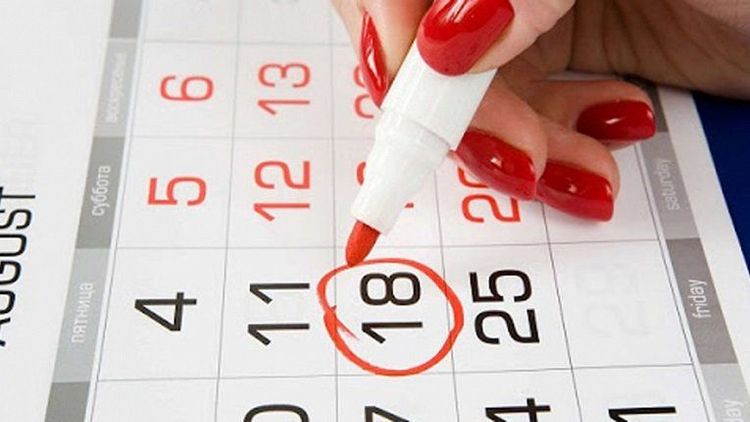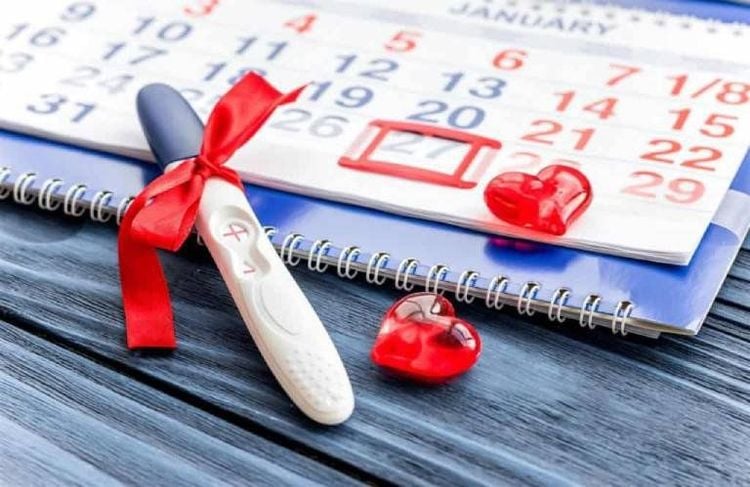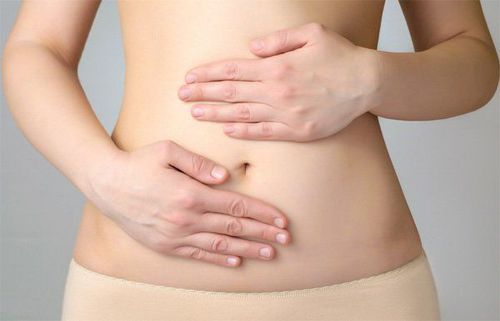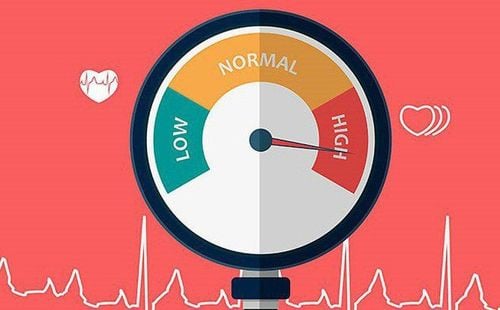The right time for sexual intercourse is a concern for many couples in order to achieve satisfaction and know when intercourse is most likely to result in pregnancy. Researchers have concluded that having sex in the morning or on the day of ovulation brings health benefits by releasing endorphins, which reduce blood pressure and stress, helping you have a better day. Read the article below to find the best time for both partners.
A good time of day for sex is around 3 PM because this is when men and women are most in sync. Men are physically most active in the early morning to mid-morning (due to increased testosterone), but their estrogen levels peak in the late afternoon, making them more emotionally connected to their partner. Women also experience the highest cortisol levels at this time, which boosts energy and alertness.
However, if 3 PM is not the right time for you, there is evidence that mornings are also a good time. A study of 1,000 people conducted by Forza Supplements found that the best time for sex is around 7:30 AM, approximately 45 minutes after waking up. Of course, this is not a rigorous study peer-reviewed by a major academic organization. So, what is the best time for sexual intercourse and when is intercourse most likely to lead to pregnancy?
1. The Right Time for Sexual Intercourse
The timing of conception depends on the length of the menstrual cycle, which varies among women. The most suitable time to conceive is on the day of ovulation, when the egg is released from the ovary (ovulation), and the five days leading up to it. Having sexual intercourse during this period gives women the highest chance of becoming pregnant. In fact, a woman can only conceive on a few days of her menstrual cycle. This is because sperm and eggs only survive for a short time: sperm can live for about five days, and an egg can only be fertilized within approximately 24 hours (one day) after being released from the ovary. The egg and sperm need to meet at the right time for fertilization to occur and form an embryo.

Ovulation is the process when a mature egg is released from the ovary. After that, fertilization occurs as the egg moves down the fallopian tube. If sperm are present in the fallopian tube when the egg is released, fertilization is likely to happen, leading to the formation of an embryo, which may develop into a baby.
In theory, pregnancy only occurs if a woman has intercourse within five days before ovulation or on the day of ovulation. However, in practice, the most fertile days are the three days before and including the day of ovulation. This period is considered the golden window for conception. The time 12–24 hours after ovulation is when a woman cannot conceive during that menstrual cycle, as the egg is no longer in the fallopian tube. There is almost no chance of pregnancy if intercourse occurs before or after the fertile window.
So, how can you tell when a woman is ovulating? This can help you plan intercourse at the right time and improve your chances of conception. You can track your menstrual cycle using a chart, diary, or a free menstrual cycle tracking app on your smartphone. To calculate the length of your cycle, record the first day of your period (the first day of bleeding) as Day 1. The last day of your cycle is the day before your next period begins.
2. When and How Often Should You Have Sex to Increase Your Chances of Conception?
What is the best time of the day to have sex? The debate about whether it’s better to have sex in the morning or at night has been ongoing for a long time. For men, the time after waking up is very exciting, making the morning a good time. Women, on the other hand, tend to prefer the evening because everything is more relaxed after a day of work, household chores are done, and children are asleep.
This is explained by the fact that men experience a surge in testosterone between six and nine in the morning. They often want to take advantage of morning erections. In contrast, women have the lowest levels of testosterone in the morning, which increases minimally in the evening. This difference in hormone cycles between the sexes explains these preferences. Men can experience a 25-50% daily fluctuation in testosterone levels in the morning, leading to a higher sex drive. However, for women, significant changes in testosterone occur monthly, with the largest increase occurring mid-cycle during ovulation (though this increase is not as substantial as what men experience).
In addition to timing, many women believe in the importance of being clean before having sex. For them, the thought of morning breath, sweat, and the smell of the genitals after a night’s sleep can hinder any sexual desire upon waking. This, however, is the opposite for men. To encourage couples to engage in morning sex, the following methods can be helpful:
Focus on the benefits. For example, after sex, the hormone vasopressin increases, making men feel more emotionally attached.
Start slow. Take time to cuddle and compliment your partner. British gynecologist and researcher Gabrielle Downey says that a woman’s sexual desire is greatly influenced by her body image. So, tell her you love her tousled hair and bare face (or body) in the morning.
Go to bed earlier. Lack of sleep lowers testosterone levels in both men and women. Getting enough rest is essential to maintaining optimal hormonal balance and reducing the stress hormone cortisol, which can hinder sexual desire in both sexes.

To encourage evening sex, here are some ideas:
Watching competitive sports. Studies have shown that it can increase feelings of intensity and boost testosterone in men. It's even better if the woman is also a sports fan.
Build anticipation for being together all day to capitalize on the small increase in her testosterone levels. Sending loving, appreciative messages that build rapport can be an even stronger stimulant for her than testosterone.
Work out together at the end of the day. Couples should spend thirty to forty minutes doing high-intensity or endurance exercise to increase testosterone levels. Arousal is still easier in the 30 minutes after exercise. However, you should know that sometimes deciding when to have sex can involve a more emotional power struggle than personal preference. In this case, it's important to have an honest conversation to get to the root of the problem. Everyone may have a preferred time of day but sometimes, pleasing your partner at a time that's good for them can be both fair and exciting. When that happens, both of you benefit."
3. How Many Days Should You Wait to Have Sex?
Planning sexual activity can help couples increase their chances of conception by focusing on factors such as timing, tracking ovulation, and frequency of intercourse. If you want to conceive faster, couples may be interested in knowing when to have sex, how often, and if there are factors that could affect or increase or decrease fertility each month. It is important to know that pregnancy can occur at any time during the menstrual cycle, even while menstruating. Women can refer to ovulation tracking methods like Verywell / Jessica Ola for guidance.

Overall, teenagers tend to have a higher chance of pregnancy with just one or a few instances of sexual intercourse compared to older women, as fertility can decrease with age. If you're having trouble conceiving, there are a few things to know that can help maximize your chances. If you are already having regular sex and are not in a rush to get pregnant, timing your sexual activity may not be necessary. However, knowing the best time to have sex can certainly help if you wish to conceive quickly.
The woman's ovulation period each month is considered the "golden time" for sex, offering the highest chance of conception. Ovulation usually occurs around days 12 to 14 of a 28-day cycle, but it varies for each woman depending on cycle length and may change each cycle. Couples can have a chance to conceive as early as days 8 and 9 if they have a shorter cycle, or days 19 and 20 if they have a longer cycle.
An egg can ideally be fertilized within 12 to 24 hours after being released from the ovary, but with the help of cervical mucus, sperm can live for up to five days in the cervix. Since it’s nearly impossible to pinpoint the exact time of ovulation, having sex before ovulation (rather than after) can help increase the chances of conception because sperm will be ready and waiting for the egg.
Most women often assume that the 14th day of their cycle is when they ovulate. Therefore, many women choose to have sex on the 11th, 12th, and 13th, thinking this timing will give them a good chance of conceiving. The truth is, many women don't ovulate on the 14th day. Normal ovulation can occur as early as day 10 and as late as day 20 of the cycle. For women with irregular cycles, ovulation 1 can happen even later. Hence, they can use ovulation predictor tests. It works similar to a pregnancy test, except it tells you when you're likely to ovulate. They come in the form of test strips that react to your urine.
To use them, you urinate in a cup and dip the test strip into the collected urine. The result will show a color change or numerical readings. Some ovulation tests detect the luteinizing hormone (LH) in your urine. LH surges right before ovulation, so when the test is positive, it indicates that your body is trying to trigger the release of an egg from the ovary, making it the optimal time for conception.
Some studies suggest that the best day to have sex is when you notice an increase in cervical mucus, as this is when the chances of conception are highest. Cervical mucus is a clear, egg-white like discharge, which is completely healthy and normal and usually appears in the days leading up to ovulation. If your discharge has a strong odor or causes itching, it may be a sign of an infection, and it’s important to see a doctor. Cervical mucus helps improve sperm motility (movement) and helps them survive. The more sperm that survive and make it to the fallopian tubes, where the egg is released, the higher the chances of fertilization. Additionally, a relaxed and stress-free mood can increase the chances of pregnancy.
Some women may notice that their libido is stronger at certain times of the month. This is no coincidence. The same hormones that surge just before ovulation also boost a woman's sex drive. While sexual pleasure can contribute to increased fertility, it's not necessary to worry that every sexual encounter has to be the most passionate ever. The theory that female orgasm can increase the chances of conception may not be accurate. This theory overlooks the physiological fact that during orgasm, a woman's cervix and uterus are lifted up and out of the range of male ejaculation. Therefore, having an orgasm doesn't necessarily lead to pregnancy

How often should couples have sex? This depends on each couple’s personal preferences. Experts advise against having sex more than once a day. It may seem like having sex more often will increase your chances of getting pregnant, but in fact, having sex too often can reduce the number of healthy sperm.
While some women feel empowered by being able to track ovulation, others just feel anxious and overwhelmed by it all. Regardless of the ovulation tracking method you choose, paying too much attention to your cycle and ovulation signs can be mentally exhausting. If timing intercourse with ovulation causes anxiety, you might rely on scheduled intercourse instead. In these cases, experts recommend having sex on a weekly cycle, every other day. With this schedule, couples are bound to have sex at least once during their fertile period, even without tracking the cycle. Try to have sex at least three to four times a week throughout your cycle.
For women who enjoy spending time tracking and detecting ovulation, they can ensure having intercourse during their most fertile period. If sperm count is normal or healthy, the best advice is to have sex daily. In this case, you should have intercourse for three days before the expected ovulation and possibly on the day of expected ovulation. However, you should still have sex throughout your cycle just to maintain the highest sperm quality. Additionally, couples should also take time to enjoy sex without the task of conceiving.
Thus, sexual intercourse is a regular activity in life, and couples planning to have children should make their own plans. Tracking the menstrual cycle to find the golden time in the cycle is quite important. However, this is just one way to make the conception process easier. Each couple can choose the best time for both to have intercourse, whether in the morning, afternoon, or evening, depending on their circumstances. Couples should not have sex too many times a day; instead, they should aim for 3-4 times a week. This helps both partners to be mentally comfortable and ensures the quality of eggs and sperm.
To arrange an appointment, please call HOTLINE or make your reservation directly HERE. You may also download the MyVinmec app to schedule appointments faster and manage your reservations more conveniently.
Reference articles: yourfertility.org.au, psychologytoday.com, verywellfamily.com












